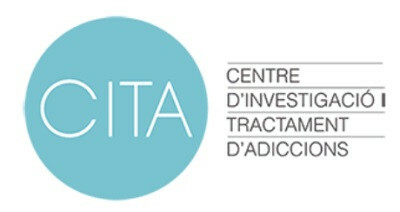What to do to overcome dual pathology?
Dual pathology is one of the most dangerous complications in the field of psychiatry and clinical psychology. It is about the overlap between an addiction and another psychological disorder: for example, what happens when you develop depression and then alcoholism.
In these cases it is crucial to get down to work as soon as possible to manage their symptoms and weaken them as much as possible. possible, among other things because the deterioration of the state of physical and mental health is very accelerated if it is not done nothing.
Therefore, here we will see some key ideas to know what to do to overcome dual pathology, in summary.
- Related article: "The 14 most important types of addictions"
Overcoming dual pathology: 5 key ideas
Normally, the fact of having developed a psychological disorder is already a reason to seek treatment from mental health professionals as soon as possible. In the case of dual pathology, in which there are at least two disorders, it is even more important to start therapy as soon as possible.
, as both issues reinforce each other and deal more damage than they would on their own.Thus, people with dual pathology need professionals to offer personalized treatment to both when evaluating what is happening to them as well as when proposing measures, and that they follow up on their case.
However, beyond what is done during therapy sessions there are a number of key ideas to keep in mind to overcome dual pathology in general. They are the following.
1. Nothing replaces therapy
It is crucial to be very clear that there is no activity or routine that has the power to replace the therapy carried out by professionals. For this reason, although for some people it may mean leaving their comfort zone, it is necessary to contact centers of therapy in which psychologists and/or psychiatrists attend and commit to a process of change with the help of these specialists.
2. Beware of trap thoughts
Addictions are maintained over time, among other things, thanks to their power to make us fall into trap-thoughts: excuses we give ourselves to relapse over and over again or not even try to leave dependency behind. We have an example of this in the previous key idea: the mistaken belief that it is not necessary to go to therapy, that it is nothing more than a way to prevent the addiction from ending.
3. Each disorder is a world
Although the concept of "dual pathology" may imply that all people diagnosed in this way experience the same thing, the truth is that the symptoms of This psychological alteration depends entirely on which disorders are involved: it is not the same to have an addiction to alcohol and ADHD than to have an addiction to benzodiazepines and Obsessive-Compulsive Disorder.
For this reason, one must be careful with the advice that other people with dual pathology may give, and at the same time not be carried away by preconceived ideas that may arise when interacting with other patients with the same "label": it is necessary to become aware of the heterogeneity that exists behind this term.
4. Everything else is in the background
Health comes first, so the dual pathology treatment process should be the priority. After all, addictions are characterized by making everything else stop being so important to us, so if we do not commit to therapy, spontaneously and almost without realizing it, we will throw in the towel at the slightest opportunity.
5. You have to rely on the context
Managing the symptoms associated with dual pathology is not a matter of willpower, but rather having the correct information, having the necessary professional help, and doing everything possible to transform our environment into a place that helps us overcome this psychological alteration. For example, something as simple as coming home and emptying all the bottles of alcoholic beverages down the sink. can make a difference, as well as regain friendship with those people who tried to keep us away from the addiction.
Looking for help?

If you suffer from any problem related to addictions, it is important that you take control of the situation as soon as possible, and for this it is necessary to have professional help. In the event that you live in the area of Barcelona and its surroundings, we invite you to contact our team of professionals from Clínicas CITA.
We are specialized in the treatment of addictions and dual pathology, both with hospitalization and without hospitalization, and we have a presence both in Barcelona and in Dosrius (Mataró).
To see our contact details or read more about this addiction treatment center, click here. click here.
Bibliographic references:
- Regier DA; Farmer ME; Rae DS; Locke BZ; Keith SJ; Judd LL; Goodwin FK (1990). "Comorbidity of mental disorders with alcohol and other drug abuse. Results from the Epidemiologic Catchment Area (ECA) Study". NEVER. 264 (19): p. 2511 - 2518.
- van Emmerik-van Oortmerssen, K.; van deGlind, G.; van den Brink, W.; Smith, F.; Crunelle, C.L.; Swets, M.; Schoevers, R.A. (April 2012). "Prevalence of attention-deficit hyperactivity disorder in substance use disorder patients: a meta-analysis and meta-regression analysis". Drug Alcohol Depend. 122 (1–2): p. 11 - 19.
- Wright, S.; Gournay, K.; Glorney, E.; Thornicroft, G. (2000). Dual diagnosis in the suburbs: prevalence, need, and in-patient service use. Social Psychiatry & Psychiatric Epidemiology. 35 (7): p. 297 - 304.
